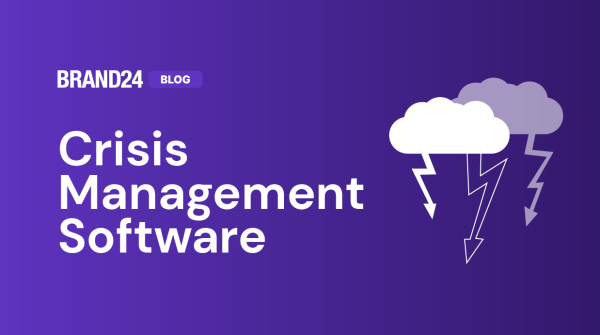PODCAST: “Brand Management in Social Media” with Katyan Roach
Katyan Roach is a Social Media Manager and Coach, who gets excited at the prospect of helping part-time entrepreneurs and small to mid-sized business owners, wades through the sometimes overwhelming world that is Social Media and Digital Marketing.
She says “I’m passionate about helping others succeed and grow, for I believe that in the end, real success comes from helping others to realize their dreams”.
Host: Let’s talk a bit about social media, being more meaningful today than ever before. There are billions of users, millions of leads, but I’d like to ask a question that is a bit tricky. Do you think it’s a good place to exist for EVERY brand? Who should be there, in your opinion, and who maybe should stay away from social media?
Katyan: I think that’s an excellent question. It made me think a little bit while you were asking. Are there brands that shouldn’t be there? But then I thought it’s really not about whether you as a brand or a company think that you should be there. A better question would be: Are your customers there? Which platforms are your customers hanging onto? If your customers are online, then you definitely need to be online, you need to be where your customers are. Hence, I don’t think there is any brand that shouldn’t be there if their customers are there. Like you said, there are millions of users, millions of leads are there are many different platforms for different types of businesses. So definitely, once your customers are online, you need to get online.
Host: Could we then say that everything depends on our audience, on our clients?
Katyan: That is correct. It does indeed depend on our customers. We should look at it from the client’s perspective when it comes to social media.
Host: I think there’s a big difference in the response, for example, for an advocate agency, for a medical company, and for a public relation agency. We should always take into consideration what the audience expects. Therefore, I would say that it’s not only about existing online, but more on the way companies expose themselves. Would you agree?
Katyan: Yes, I would. It is different in each case. As previously mentioned, there are different platforms for different companies. For example, if you are a business-to-consumer company, you may find yourself on platforms like Facebook, Instagram or Twitter, to name a few. However, if you are a business-to-business company then you may find yourself on platforms such as LinkedIn. There is room for everyone and every company can use social media differently. One way or another, you should be online once your existing or prospective clients are there as well.
Host: What would you say to be the most important thing for a company that wants to start its social media existence? Would it be being always online and reacting swiftly, would it be developing high-quality content or maybe sharing news and information related to the company?
Katyan: I would say all of the above. You might get overwhelmed and think you were going to do all of that. In reality, you do need to be always there. It would be pointless having a social media presence if you just popped in ‘on’ and ‘off’. People need to consistently know that you are going to show up. If they have an issue and they post something on your wall, they want to know that they’ll get a response from you, just the same as picking up the phone. They want to know they can reach you. Social media gives them that opportunity to stay in touch with you. Delivering a high-quality content is also crucial. As for sharing information related to the company, I would think that it’s the least important as people come on social media to be social. As much as you want to sell or talk about how great your company is, people really want to know what your company can do for them, which of their problems you can solve – that’s why they are coming. They’re not necessarily coming to hear how many awards you’ve got or how great you are. That goes only so far in terms of them building that confidence in who you are as a brand. To give them the sense that you know what you’re doing or maybe you treat your employees well. That is all good, but ultimately people want to know what you can do for me, what is your area of expertise, what problems you are solving. To conclude, to be there, available online and to deliver high-quality not just content but information is as essential as helping me as a consumer solve my problems.
Host: You said that we shouldn’t compare ourselves to others, nor be jealous or copy what was already done. Isn’t it, though, important to look around and know what works good and what to avoid?
Katyan: Yes, it’s important to look around and see what works. Of course, you can try to put your own spin on what might already work with someone else. When I said that we shouldn’t compare ourselves to others was basically for people who are now coming up in business. When you are just getting on social media and just getting started online, you can tend to look at the others, on your competitors or brands in your industry and you can tend to want to follow or be like them, not realizing that a couple of things may be occurring that is different between you and them. They may have more ads spent, more money to push their brand. They may have been there a lot longer than you are, so the following that they have has been built over time, whereas you are just starting. Comparing yourself to such a bigger brand or to any other, to be fair, can get really frustrating. Ultimately, although there are things we can look at and try to duplicate, the reality is that people will gravitate to you because of who you are, because of your unique spin. In the same way, people will gravitate to another company because of who they are and if you copy, then you are no different, you lack originality. The only way to be original is to simply be yourself. That’s what I meant when I said that we shouldn’t compare ourselves to others, but yes, there are things that work with other brands and there’s nothing wrong with trying to put your own spin on it or seeing if you can do it better.
Host: What you said is really important, namely we should aim at finding out what’s is the best in us. Not trying to copy anyone or trying to pretend to be another company, but trying to figure out what I can show, what I can tell what I can sell. It’s very important to have our own identity. I’d like to talk about particular platforms. LinkedIn is indicated for professionals and Snapchat is rather for fun. What about Facebook and Instagram or Vimeo? Where is the line between private and public life? Are there any rules telling us how we should behave and what to publish via those channels?
Katyan: I think so. It is different if you’re a brand, if you’re on social media with company fees. There’s a certain level of professionalism that people would expect from you as a company online. If you’re an individual who is now branding yourself, there is sometimes a thin line between your private life, your private persona on your public persona. So if you’re an individual and your marketing itself as a social media manager or as an entrepreneur and the brand is built around you, there are certain things about you as a person that you may or may not want to share. Some people are very open. They share their kids’ lives and what they had for breakfast and, again, people gravitate so that. People get to know you as a good person. Then there are those who are very private, they share about a business, they share about their area of expertise and they don’t necessarily go behind the scenes. I guess ultimately it’s what you are comfortable with as an individual. Our understanding that social media and the fact that being online can sometimes take on a life of its own. My personal opinion is that there should be a line between the things that you share about your private life publicly. I don’t think that it should be a free for all and every single thing that’s happening in your life you should share, but that’s my personal opinion. There are others who do that and without success really. That all ties back up to the first question about being unique and doing things that work for you ultimately.
Host: I was wondering because sometimes there are people that I really like to follow. They share very important things, as for example links or mentions. Sometimes, however, as you mentioned, they just publish what they ate or pictures of their family. It’s hard to tackle, as I don’t want to block them on my Facebook wall, but it makes it much more challenging to find only the valuable information. I am curious if you have any examples of excellent fan pages or a case study presenting companies that have used their crisis in social media to their advantages.
Katyan: Actually, just yesterday I was reading an article on Brand24 about Mercedes-Benz and their case study. If you google Mercedes you find a lot of great things being said about how to use the social media presence. On their Facebook main page, they have over 20 mln likes. A number of likes is actually a whole different topic right now because it’s not that metrics to measure. What you really want to measure is engagement. They seem to be doing a really good job in terms of engaging their fans and putting content that their fans connect with and like. So when you’re looking at who does it well, Mercedes-Benz seems to stand out online. As for the question about the crisis or something that may have happened on social media, I remember one when this pizza company in the U. S. took up on a hashtag that they didn’t really understand. The hashtag (#WhyIStayed) was speaking about domestic violence and it was trying to raise awareness and discussion on the subject. This pizza company, DiGiorno, used the hashtag and put ‘#WhyIStayed You had pizza’, not really understanding what it was about. They had to apologize, come out and show that they had made a mistake in terms of what they did online. It’s really tricky, I don’t know how they could have used that crisis to any advantage. A lot of times when you end up in a crisis situation online, you just have to hope something more interesting, than what has happened to you, will come up and people are going to forget. I say hopefully because, with Google, you can find anything no matter how long ago it was.
Host: That is very challenging, as you said, to turn crisis into success. There are companies that have managed to do this, but I think it is very difficult. Social media is to some extent a new kind of media for us, so we all learn how to deal with that. We see companies that struggle with feedback from the clients and they act as if it was the 90s. It’s interesting that companies like Mercedes and others are doing really, really well in social media and can serve as an example for the rest. Still, there are so many companies that seem as if they were thinking in the past.
Katyan: It’s not always easy to deal with customer complaints online. Even the mentioned Mercedes had a customer complaint on their main war, but they gave the customer a really nice response. They kindly asked to contact their office and promised that someone would look at it. The customer didn’t go away and said ‘okay, fine, cool, thank you, I’m going to do that, I’m so happy’. The person came back with ‘I have done that already and I’ve been told X. Y. Z. and I I don’t expect such service from you’. Now, I assume and I expect, based on their history, that they will come back to that customer again. Some people, however, in terms of our social media has made it very easy for people to complain, and sometimes complain and keep complaining no matter how hard you’re trying to solve their problems. Sometimes, the challenge may be with a customer. You may have done all you can for the customer but that customer is posting things on social media about how horrible you are as a company. There’s only so much you can do as a company online. You definitely just have to move on sometimes.
Host: Without doubts, it’s not that simple to run fan pages and social media that it is visible from the outside. It’s challenging. It is hard to predict anything, it’s a fast changing world. Trying to estimate what will happen in the next months or one year, which platform will grow and which of them has the biggest potential in your opinion?
Katyan: Well, I think Facebook with over 1 billion active users is the biggest platform and is definitely going to grow. Everyone is also talking about Snapchat, or so it seems on my feed, so that seems to be growing. I think the potential lays in live video and streaming, because once the biggest platform is pushing that, it’s going to get more exposure. I would, in my opinion, tell individuals and brands who are using these platforms to understand that, as they change these platforms your business model sometimes has to change. That is not a comfortable place for a business or individual who has invested in these platforms. We should always try to build it your client’s base in a space that you can control, so that when these changes come, you’re not so terribly affected. If that is at all possible. Nonetheless, I see Facebook is giving everybody else sort of run for their money as far as video goes, and I think businesses should really try to maximize the use of that in the early stages, while it’s still free. Make the best of it.
Host: We definitely always hope to make the best. Thank you very much for all that you said. You mentioned so many important things that we should implement in our social media lives.
Katyan: Thanks so much for the opportunity.
![7 Steps for Effective PR Crisis Management in 2024 [Infographic]](https://brand24.com/blog/wp-content/uploads/2024/04/PR-Crisi-Management-600x335.webp)



![How to Track Media Mentions? [2024]](https://brand24.com/blog/wp-content/uploads/2024/04/media_mentions@2x-600x335.webp)